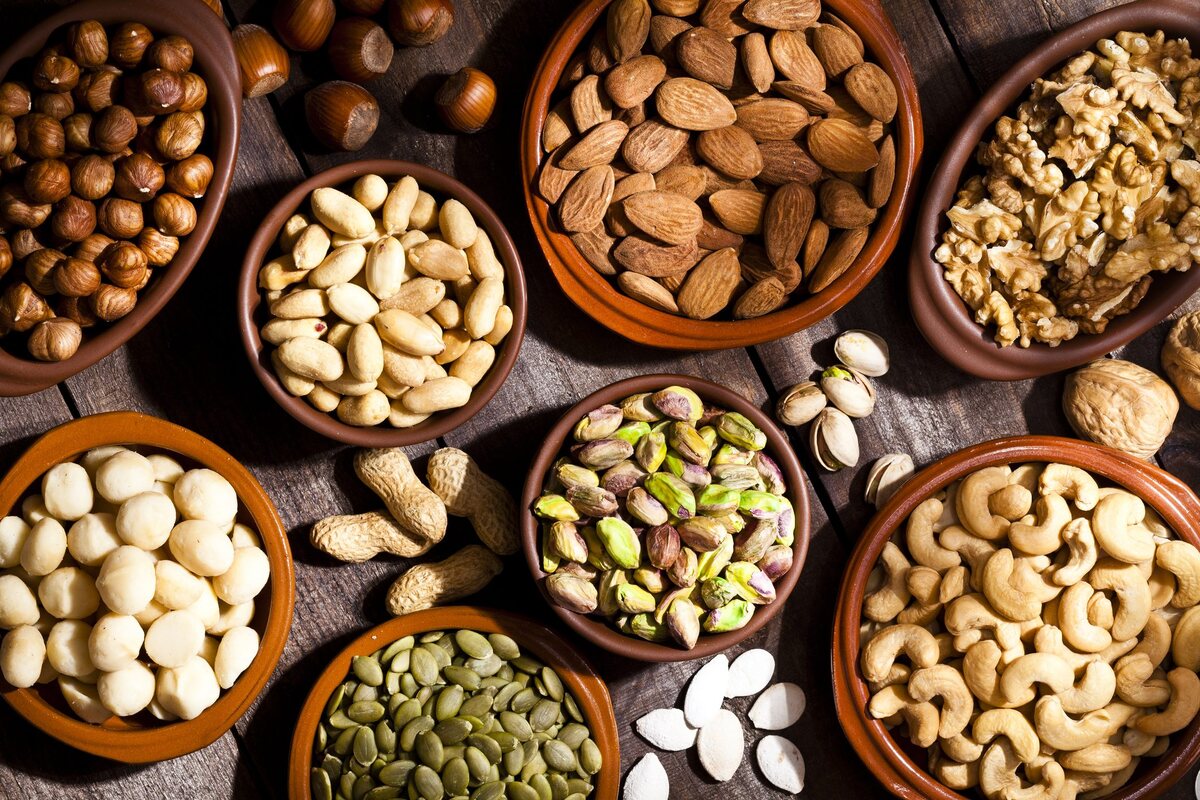

Articles
How To Store Nuts
Modified: December 7, 2023
Discover the best articles on how to store nuts and keep them fresh for longer. Learn proper storage techniques to maintain their flavor and nutritional value.
(Many of the links in this article redirect to a specific reviewed product. Your purchase of these products through affiliate links helps to generate commission for Storables.com, at no extra cost. Learn more)
Introduction
Welcome to the world of nuts, where a variety of flavors, textures, and health benefits await. Whether you’re a fan of almonds, walnuts, cashews, or pecans, properly storing nuts is essential for maintaining their freshness and quality. In this article, we will explore the best practices for storing nuts to ensure they stay delicious and nutritious for as long as possible.
When it comes to storing nuts, there are a few key factors to consider. These include choosing the right container, controlling temperature and humidity, using proper storage techniques, avoiding contamination and pests, and following best practices for different types of nuts. By following these guidelines, you can extend the shelf life of your nuts and enjoy them at their best.
So, whether you buy nuts in bulk, harvest them from your own backyard, or simply enjoy eating them as a healthy snack, let’s dive into the world of nut storage and discover how to keep them fresh and flavorful.
Key Takeaways:
- Properly storing nuts is crucial for maintaining their freshness and flavor. Choose the right container, control temperature and humidity, and follow best practices for each type of nut to ensure a delightful snacking experience.
- Extend the shelf life of your nuts with simple tips like freezing, avoiding contamination, and proper storage techniques. Enjoy the full flavor, texture, and health benefits of nuts in every bite.
Read more: How To Store Candied Nuts
Choosing the Right Container
When it comes to storing nuts, choosing the right container is crucial. The container you select will play a significant role in preserving the flavor, texture, and quality of your nuts over time.
First and foremost, opt for an airtight container. This will help prevent moisture and air from coming into contact with the nuts, which can lead to spoilage and loss of freshness. Glass jars with tight-fitting lids, food-grade plastic containers, or resealable bags are all suitable options.
Additionally, consider choosing opaque containers over clear ones. While glass jars may look attractive, exposure to light can cause nuts to degrade in quality by accelerating the oxidation process. Opaque containers will help shield the nuts from light, preserving their natural colors and flavors.
Size also matters when selecting a container. Choose a container that is appropriately sized to hold the quantity of nuts you typically consume within a reasonable timeframe. This will help minimize air space within the container and reduce the chances of oxidation and staleness.
Finally, consider the shape of the container. It’s best to choose a wide, shallow container rather than a tall and narrow one. This allows for better airflow and helps prevent moisture buildup, which can lead to mold or rancidity. If you’re using resealable bags, ensure they are large enough to comfortably hold the nuts without crushing them.
In summary, when choosing a container for storing nuts, opt for an airtight and opaque option that is appropriately sized and has a wide, shallow shape. This will help maintain the freshness and quality of your nuts for longer periods.
Temperature and Humidity Considerations
The right temperature and humidity levels are crucial for keeping nuts fresh and flavorful. Both factors can greatly impact the quality and shelf life of your stored nuts.
When it comes to temperature, it’s best to store nuts in a cool and dry environment. Nuts are sensitive to heat and can become rancid when exposed to high temperatures for extended periods. Ideally, the temperature should be below 70°F (21°C) to prevent the nuts from deteriorating.
Avoid storing nuts in areas that are prone to temperature fluctuations, such as near a stove, oven, or dishwasher. These temperature swings can cause the nuts to lose their natural oils and become stale.
Humidity is another important consideration. Excess moisture can lead to the growth of mold or the development of a rancid smell and taste. Therefore, it’s essential to store nuts in a dry environment with a humidity level below 50%. A pantry or cupboard away from the stove or refrigerator is an ideal location.
In areas with high humidity, consider using desiccant packs or moisture-absorbing packets in the container to help control moisture levels. These packets can be purchased online or at stores specializing in food storage supplies.
In summary, store nuts in a cool and dry environment with a temperature below 70°F (21°C) and humidity level below 50%. This will help preserve the freshness and quality of the nuts, preventing spoilage and maintaining their flavors for an extended period.
Proper Storage Techniques
Proper storage techniques are essential for maintaining the freshness and quality of nuts. Here are some guidelines to follow:
- Prefer Whole Nuts: Whenever possible, store nuts in their whole form. Whole nuts have a lower surface area exposed to air, which helps preserve their freshness and prevent oxidation.
- Segment Storage: If you have multiple types of nuts, consider storing them separately. Each nut variety has its own unique flavors and oil content, and storing them together can cause flavor transfer and compromise their individual characteristics.
- Label and Date: To keep track of the storage time, label each container or bag with the type of nuts and the date of storage. This practice ensures that you use older nuts first and helps you monitor their freshness.
- Freezing: If you want to extend the shelf life of nuts, consider freezing them. Place the nuts in an airtight container or freezer bags and store them in the freezer. Freezing nuts can help preserve their freshness for up to a year. When ready to use, thaw them in the refrigerator overnight.
- Avoid Frequent Opening: It’s best to minimize the frequency of opening the storage container. Every time you open the container, you expose the nuts to air, moisture, and light, which can accelerate staleness and oxidation.
- Rotate Stock: To ensure you consume the nuts at their peak freshness, practice stock rotation. Use the older nuts first before reaching for the newly bought ones. This helps ensure that you always have fresh nuts on hand.
By following these proper storage techniques, you can maintain the quality and freshness of your favorite nuts, ensuring a delightful snacking experience every time.
Store nuts in an airtight container in a cool, dark place to maintain their freshness and prevent them from becoming rancid. Avoid storing them near heat sources or in direct sunlight.
Avoiding Contamination and Pests
Contamination and pests can quickly ruin the quality of stored nuts. To keep your nuts safe and free from unwanted intruders, follow these guidelines:
- Clean Storage Containers: Before storing nuts, make sure the containers or bags are clean and free from any residues or contaminants. Wash the containers with hot, soapy water and rinse them thoroughly. This step helps eliminate any potential sources of contamination.
- Proper Sealing: Ensure that the storage containers or bags are tightly sealed to prevent pests from entering. Critters such as ants, beetles, and weevils are attracted to the aroma of nuts and can easily find their way into loosely sealed containers.
- Careful Handling: Avoid touching nuts with bare hands as they can transfer oils and potential contaminants. Use clean utensils or gloves when handling nuts for storage or consumption.
- Check for Infestation: Before storing nuts, carefully inspect them for signs of infestation. Look for any visible damage, holes, or webbing that could indicate the presence of pests. If you spot any contaminated nuts, discard them to prevent the spread of infestation.
- Consider Pest Deterrents: To further deter pests, you can use natural repellents such as bay leaves, whole cloves, or dried chili peppers. Place these items in the storage container to help keep pests at bay.
- Regular Inspections: Periodically check stored nuts for signs of pests or spoilage. This way, you can take immediate action if any issues arise and prevent the spread of contamination or infestation.
By practicing good hygiene, proper sealing, and regular inspections, you can minimize the risk of contamination and pests, ensuring that your nuts remain safe and delicious for your enjoyment.
Read more: How To Store Pistachio Nuts
Best Practices for Different Types of Nuts
Each type of nut has its unique characteristics and storage requirements. Here are some best practices for storing different types of nuts:
- Almonds: Almonds have a high oil content, making them prone to rancidity. Store them in an airtight container in the refrigerator to extend their shelf life.
- Walnuts: Walnuts have a delicate flavor and high oil content. They can turn rancid quickly, especially at room temperature. Store them in an airtight container in the refrigerator or freezer to maintain their freshness.
- Cashews: Cashews have a lower oil content compared to other nuts. Store them in an airtight container in a cool, dark pantry or cupboard away from heat sources.
- Pecans: Pecans have a high oil content and can turn rancid if not stored properly. Keep them in an airtight container in the refrigerator for longer shelf life.
- Pistachios: Pistachios have a unique protective shell that helps retain their freshness. Store them in their shells for an extended shelf life. If buying shelled pistachios, store them in an airtight container in the refrigerator.
- Brazil Nuts: Brazil nuts have a high oil content and are prone to rancidity. Store them in an airtight container in the refrigerator or freezer to maintain their flavor and quality.
- Hazelnuts: Hazelnuts have a delicate nutty flavor and high oil content. Keep them in an airtight container in a cool, dark pantry or refrigerator.
Remember to consider the specific storage recommendations for each type of nut to maximize their freshness and flavor. It’s always a good idea to refer to the packaging or seek guidance from reputable sources to ensure proper storage.
By following these best practices, you can enjoy the full flavor and freshness of each type of nut.
Tips for Extending Shelf Life
To extend the shelf life of your stored nuts and keep them fresh for a longer period, consider these helpful tips:
- Buy in Moderation: Purchase nuts in quantities that you can consume within a reasonable time frame. This helps ensure that you’re regularly consuming fresh nuts without having a surplus that may go stale.
- Store in Bulk: If you buy nuts in bulk, it’s best to store them in larger airtight containers rather than leaving them in their original packaging. This helps maintain their freshness and prevents exposure to air and moisture.
- Keep Away from Strong Odors: Nuts can easily absorb strong odors from other foods, so store them away from pungent-smelling items like onions or spices. This prevents flavor contamination and preserves the natural taste of the nuts.
- Avoid Direct Sunlight: Exposure to direct sunlight can cause nuts to become rancid and degrade in quality. Store them in a cool, dark place to protect them from light and preserve their flavors.
- Don’t Mix Old and New Nuts: Mixing stale or older nuts with fresh ones can decrease the overall freshness of the batch. It’s best to use older nuts before opening a new package or buying fresh ones.
- Refrigerate or Freeze: As mentioned earlier, refrigerating or freezing nuts can help extend their shelf life. Just ensure they are stored in airtight containers or freezer bags to keep out moisture and prevent freezer burn.
- Consider Vacuum Sealing: Vacuum sealing nuts removes excess air, which helps retain their freshness for a longer time. If you have a vacuum sealer, consider using it to store your nuts in airtight packages.
- Regularly Check for Rancidity: Nuts can turn rancid over time. Regularly inspect your stored nuts for any signs of an off odor, taste, or appearance. If you detect any signs of rancidity, it’s time to discard them.
By following these tips, you can maximize the shelf life of your nuts and enjoy their freshness and flavors for an extended period.
Conclusion
Properly storing nuts is essential for preserving their freshness, flavor, and nutritional value. By following the guidelines outlined in this article, you can ensure that your favorite nuts stay delicious and enjoyable for an extended period.
Choosing the right container, controlling temperature and humidity, using proper storage techniques, and avoiding contamination and pests are all key factors to consider when storing nuts. Each type of nut may have specific storage requirements, so it’s important to tailor your approach accordingly.
Remember to store nuts in airtight containers, preferably in cool and dry environments, away from direct sunlight and strong odors. Label containers with the type of nuts and the date of storage to keep track of freshness. Regularly check for signs of rancidity or infestation and discard any affected nuts to prevent spreading.
If you have a surplus of nuts or want to prolong their shelf life, consider freezing them in proper airtight containers to maintain their freshness for an extended period of time. And always practice good hygiene when handling nuts, using clean utensils or gloves to prevent contamination.
With these best practices and tips for extending shelf life, you can enjoy the full flavor, texture, and health benefits of nuts in every bite. Whether you use them as a snack, in cooking, or in baking, properly stored nuts will enhance your culinary experience.
So next time you stock up on your favorite nuts, remember the importance of proper storage. With a little effort and attention to detail, you can ensure that your nuts stay fresh, flavorful, and ready to be enjoyed whenever you crave a nutritious and delicious snack.
Frequently Asked Questions about How To Store Nuts
Was this page helpful?
At Storables.com, we guarantee accurate and reliable information. Our content, validated by Expert Board Contributors, is crafted following stringent Editorial Policies. We're committed to providing you with well-researched, expert-backed insights for all your informational needs.
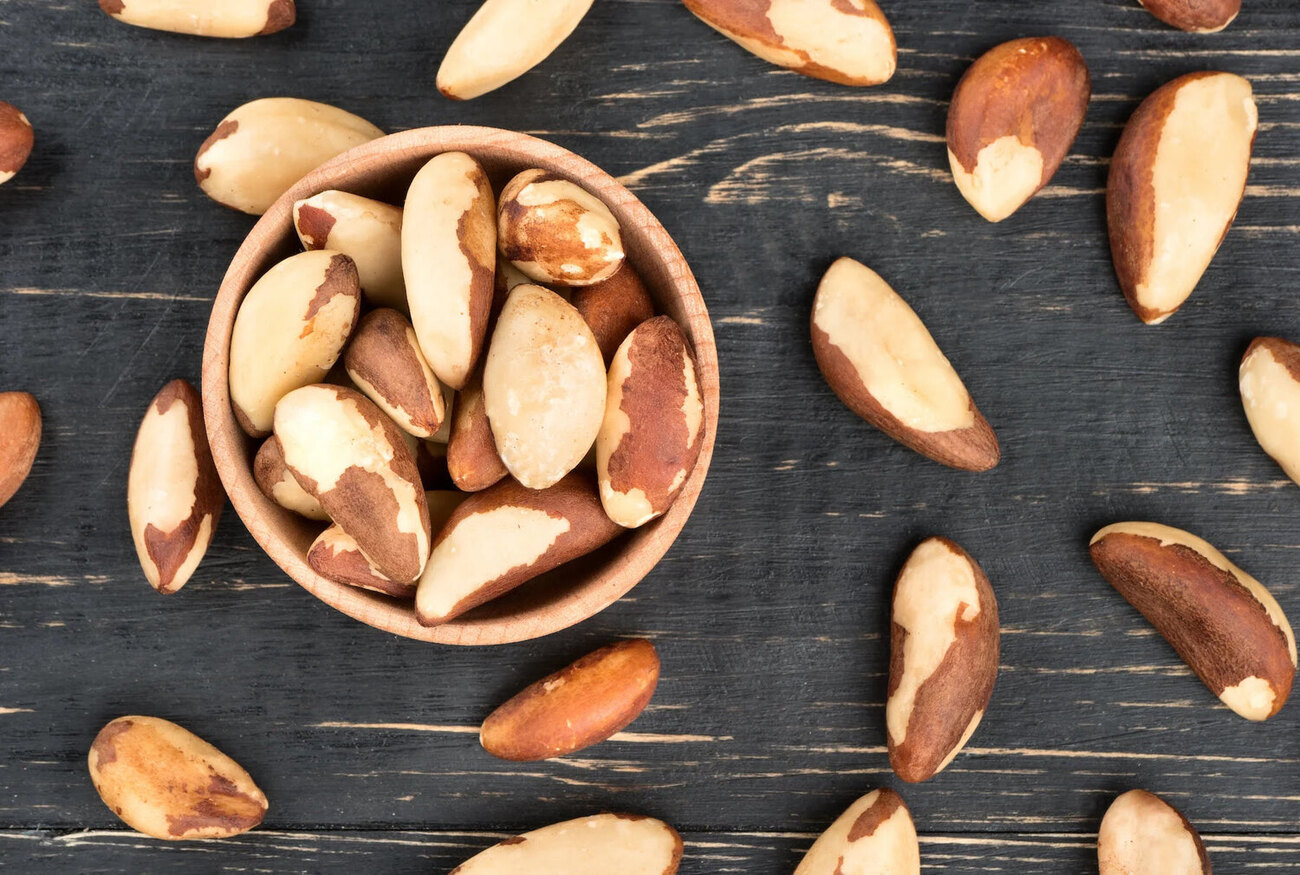
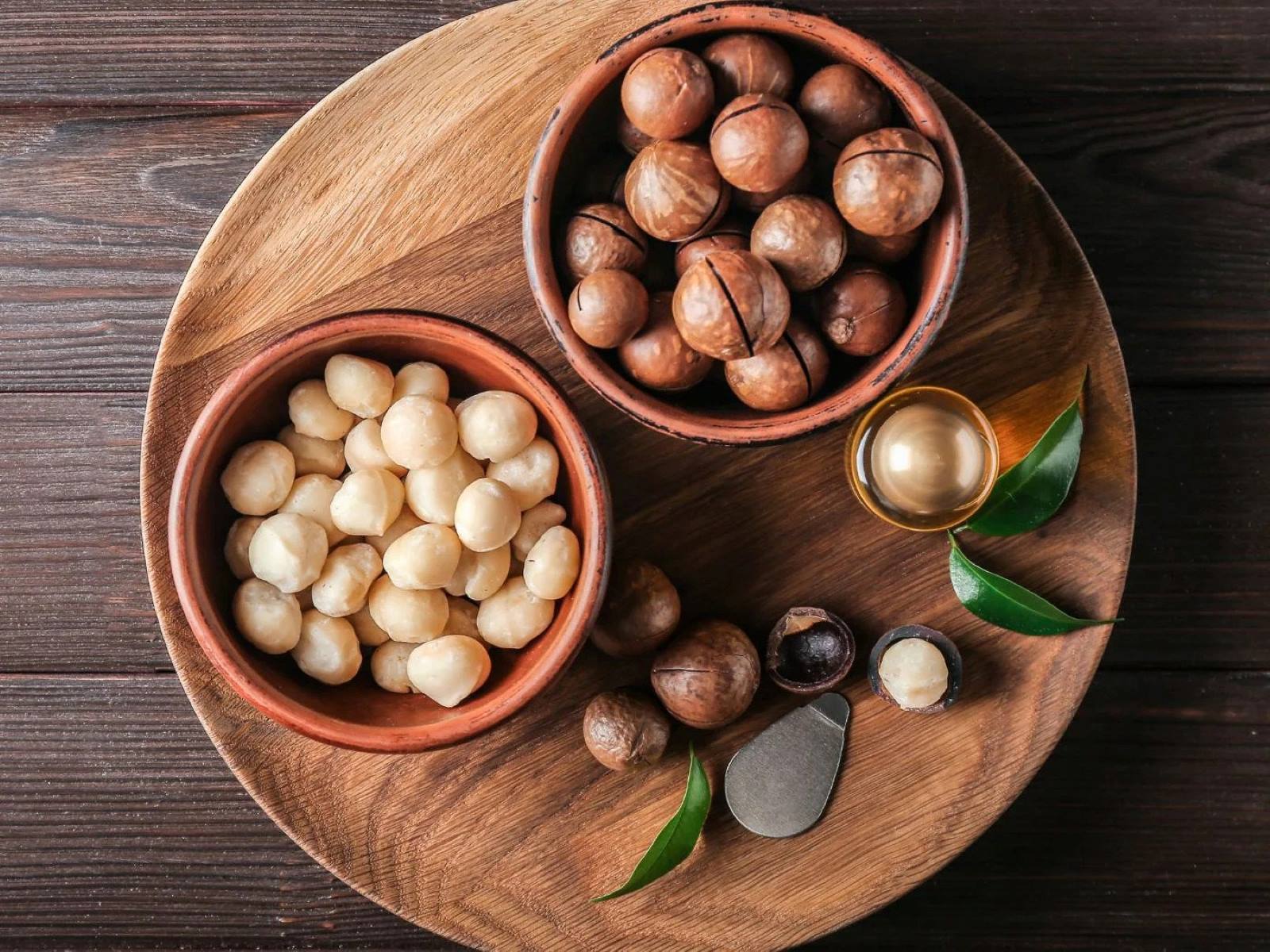
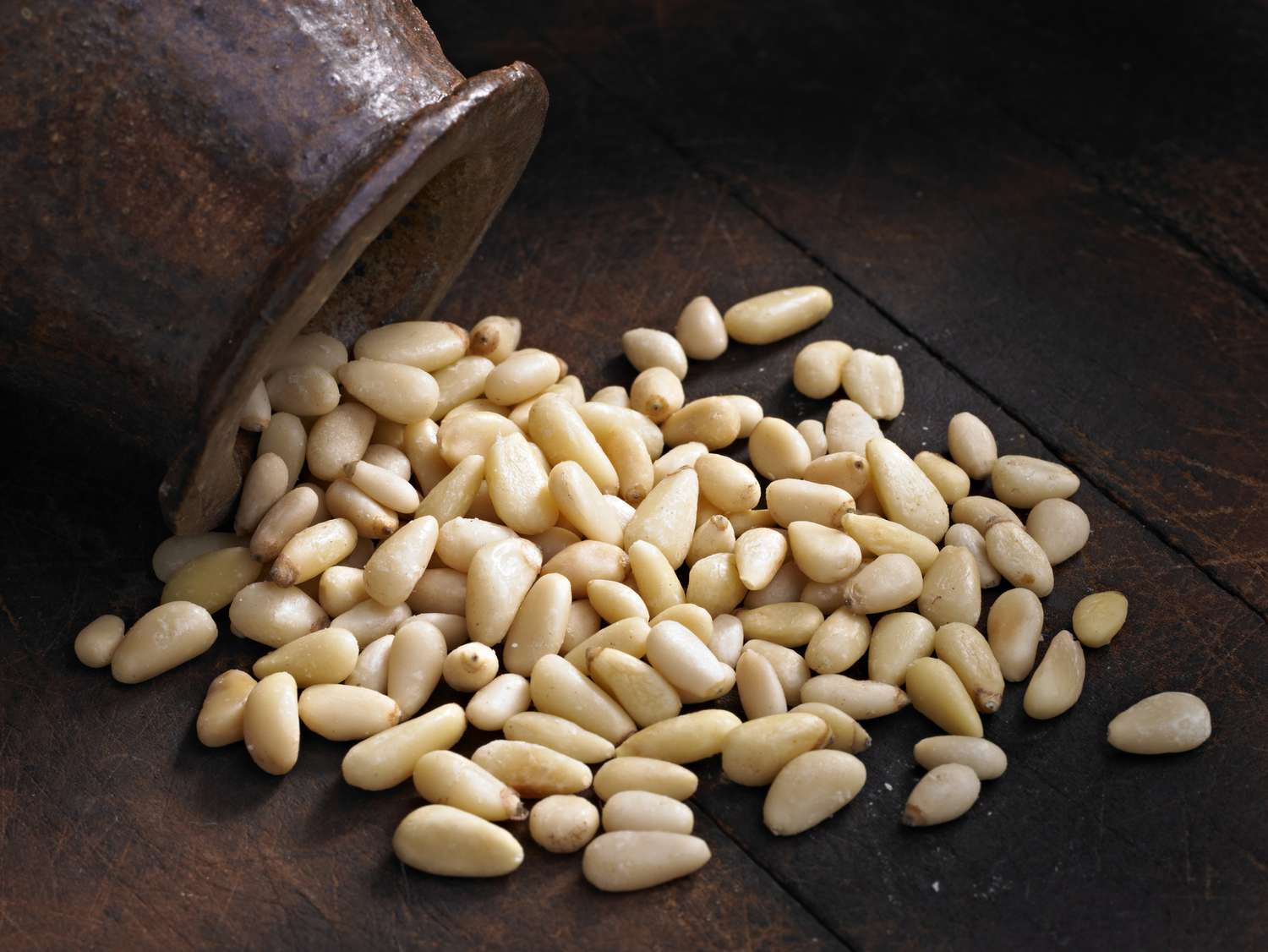
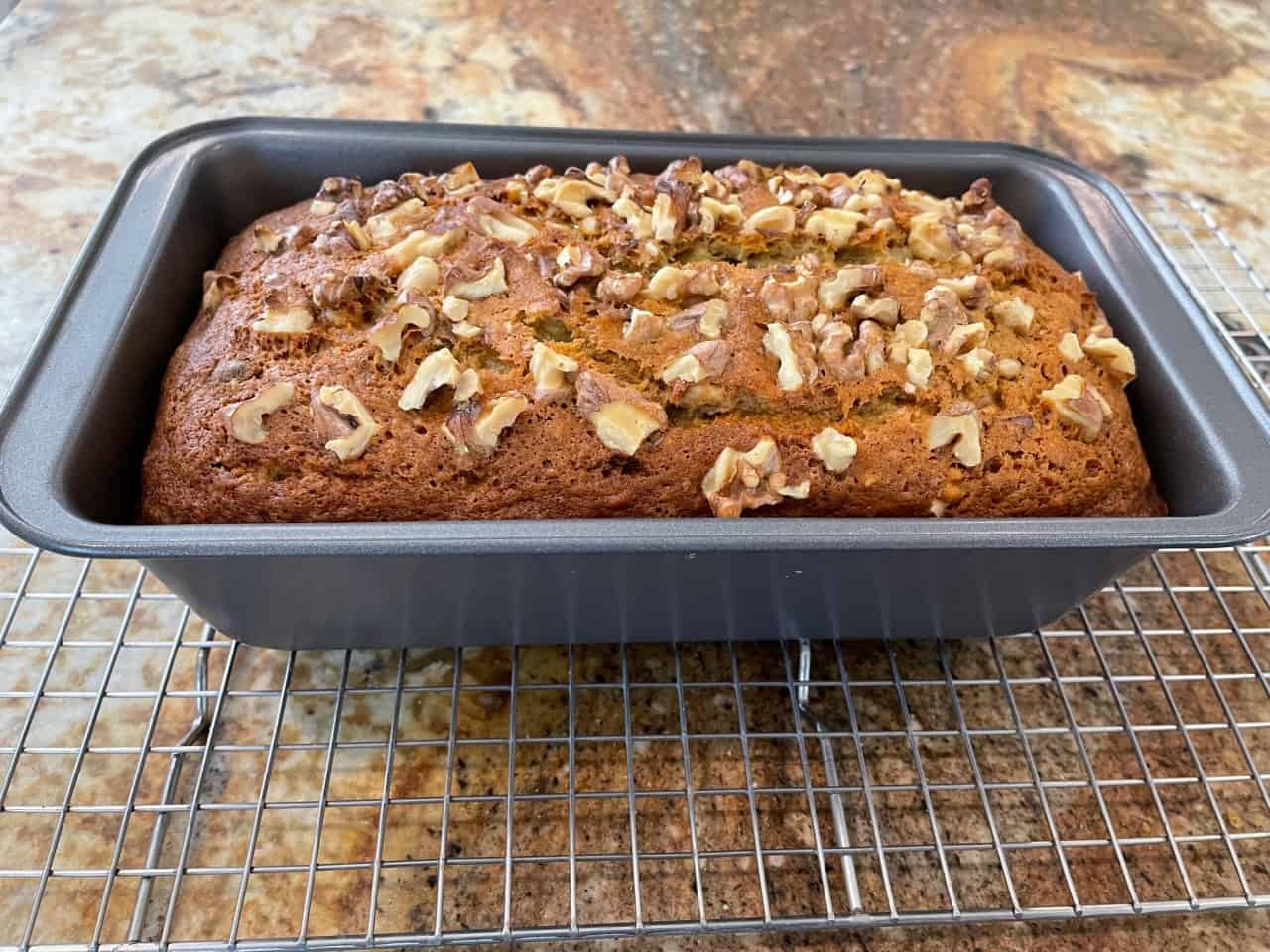
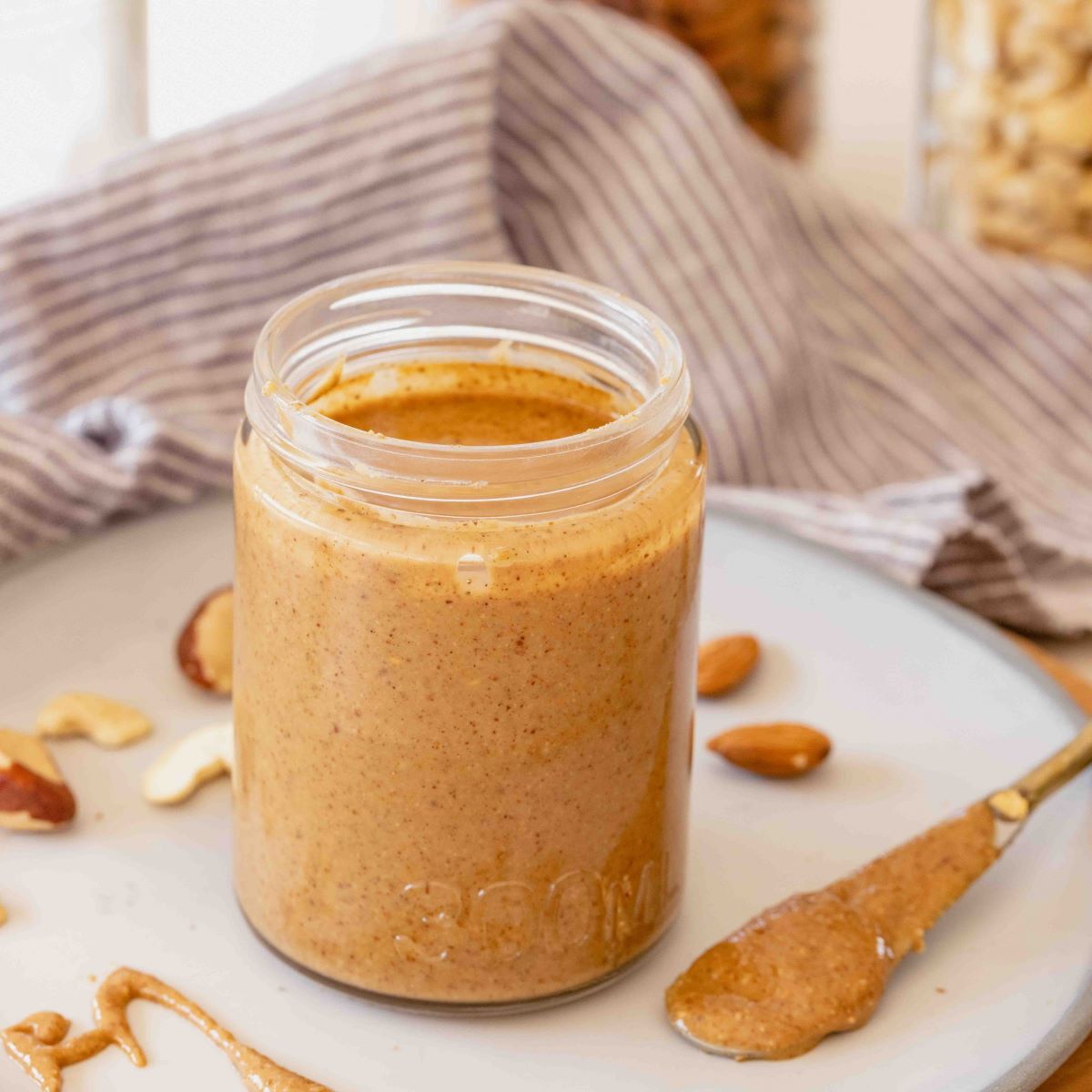
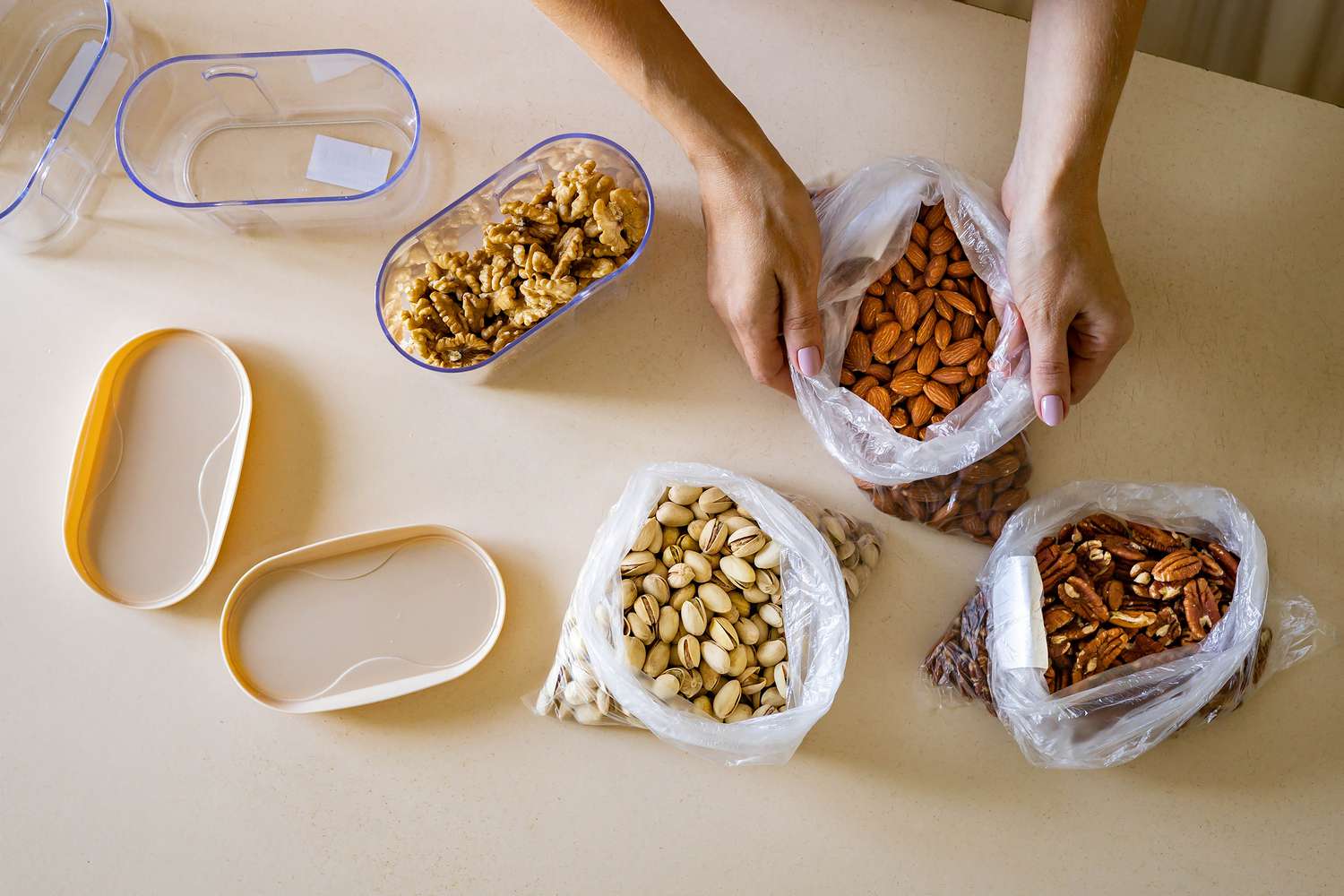
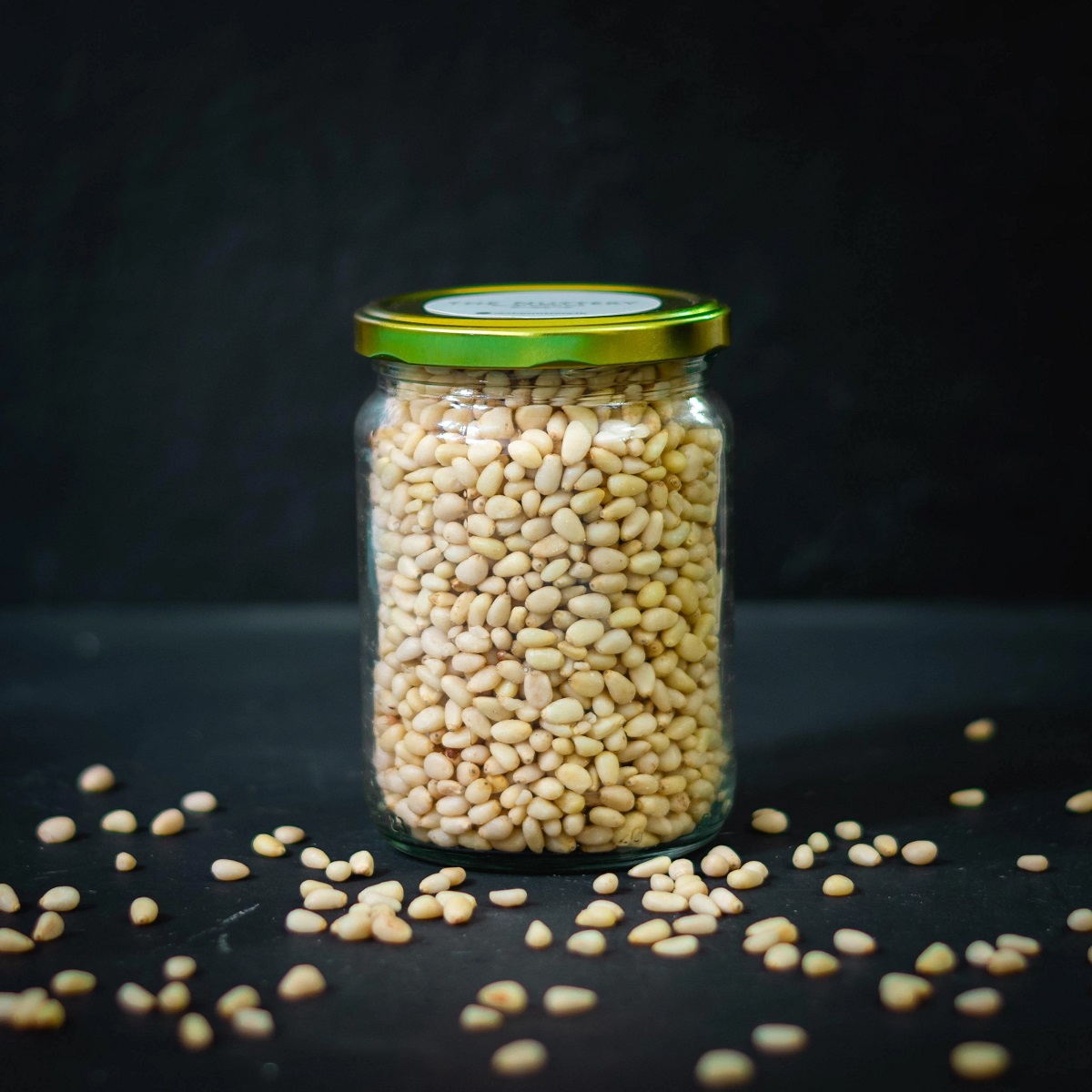
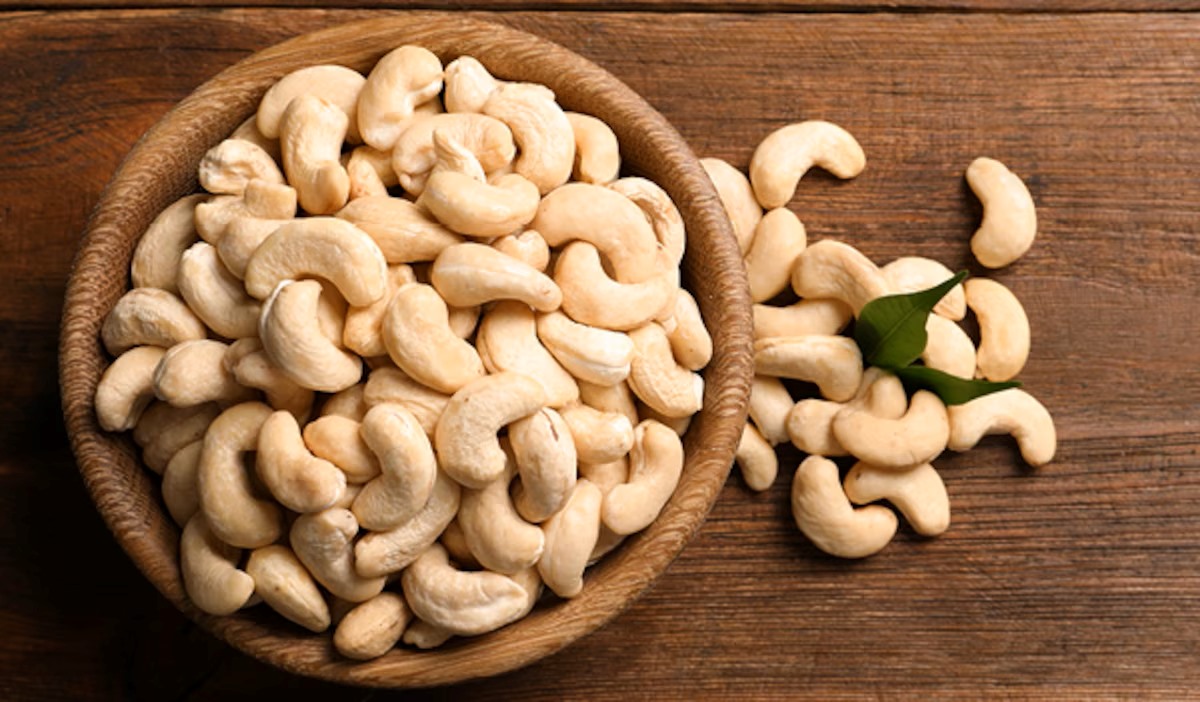
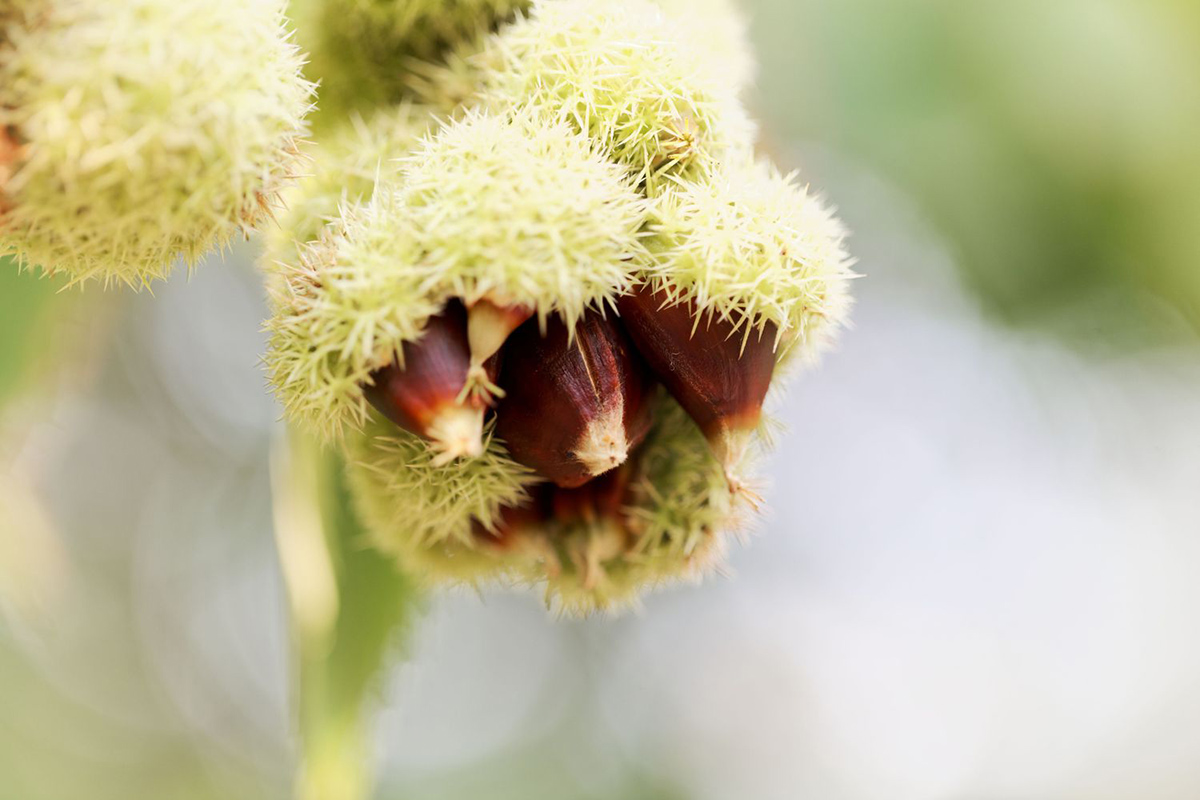
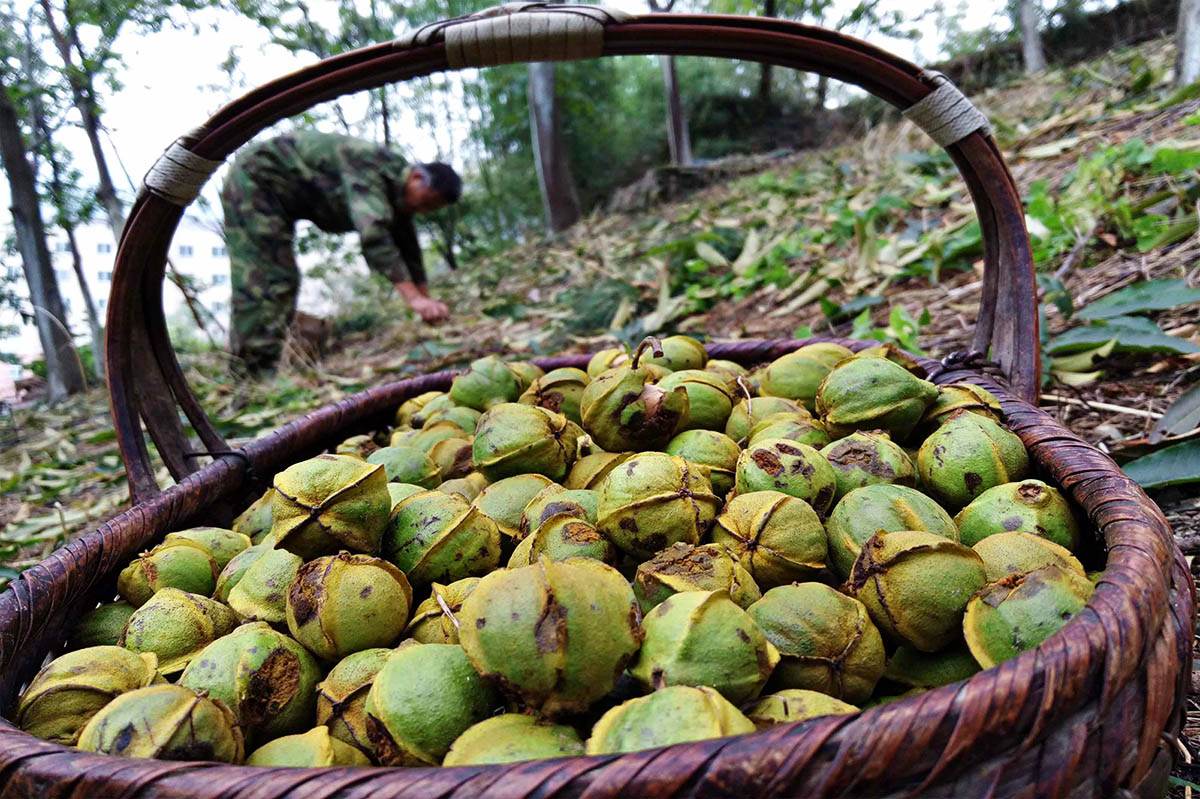
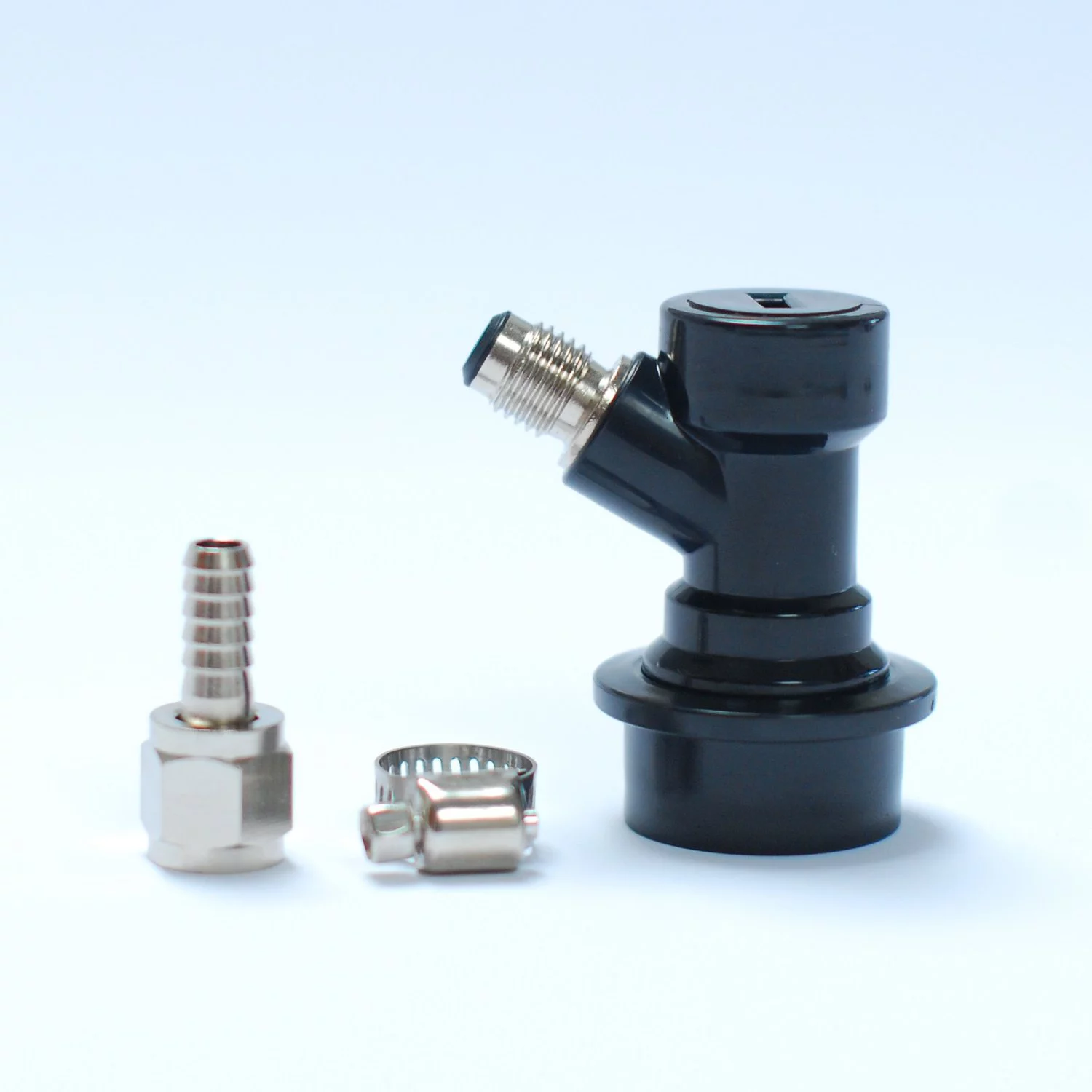
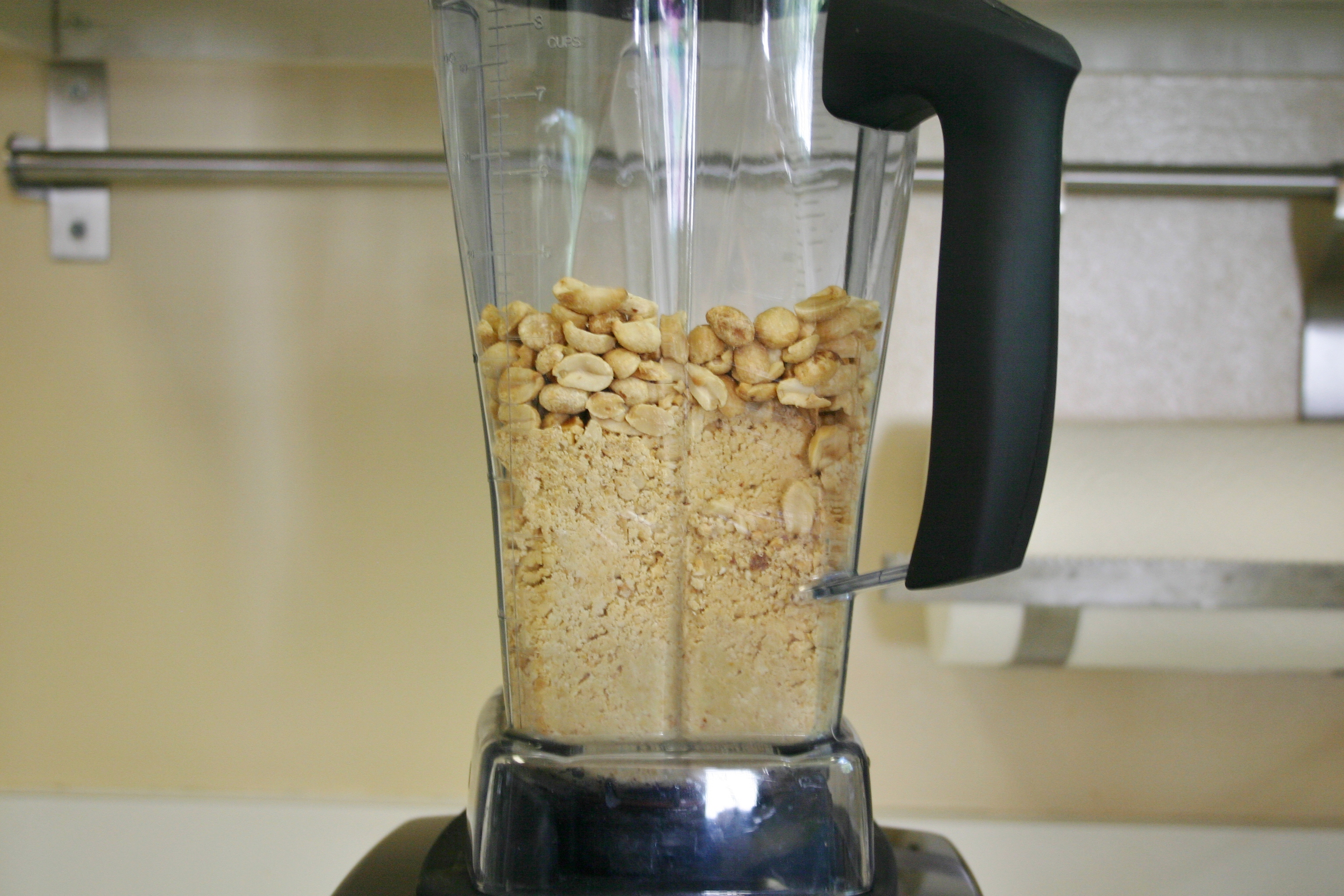
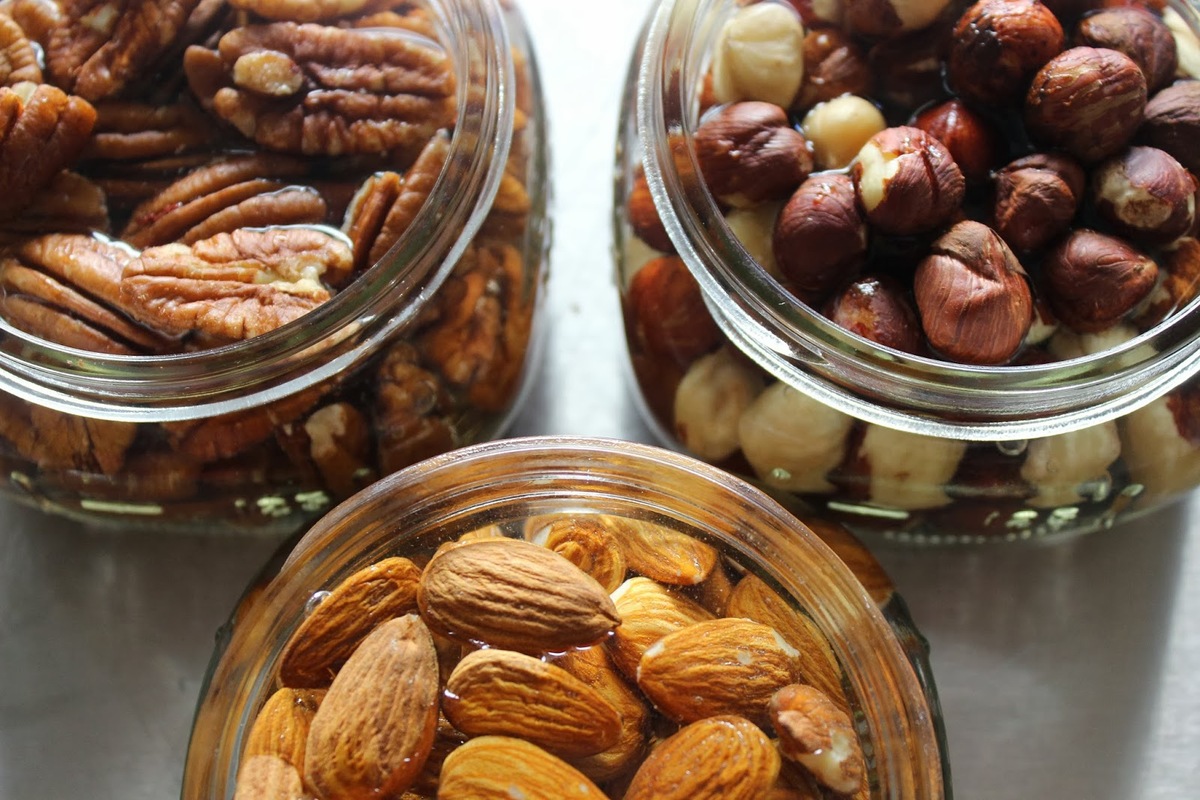
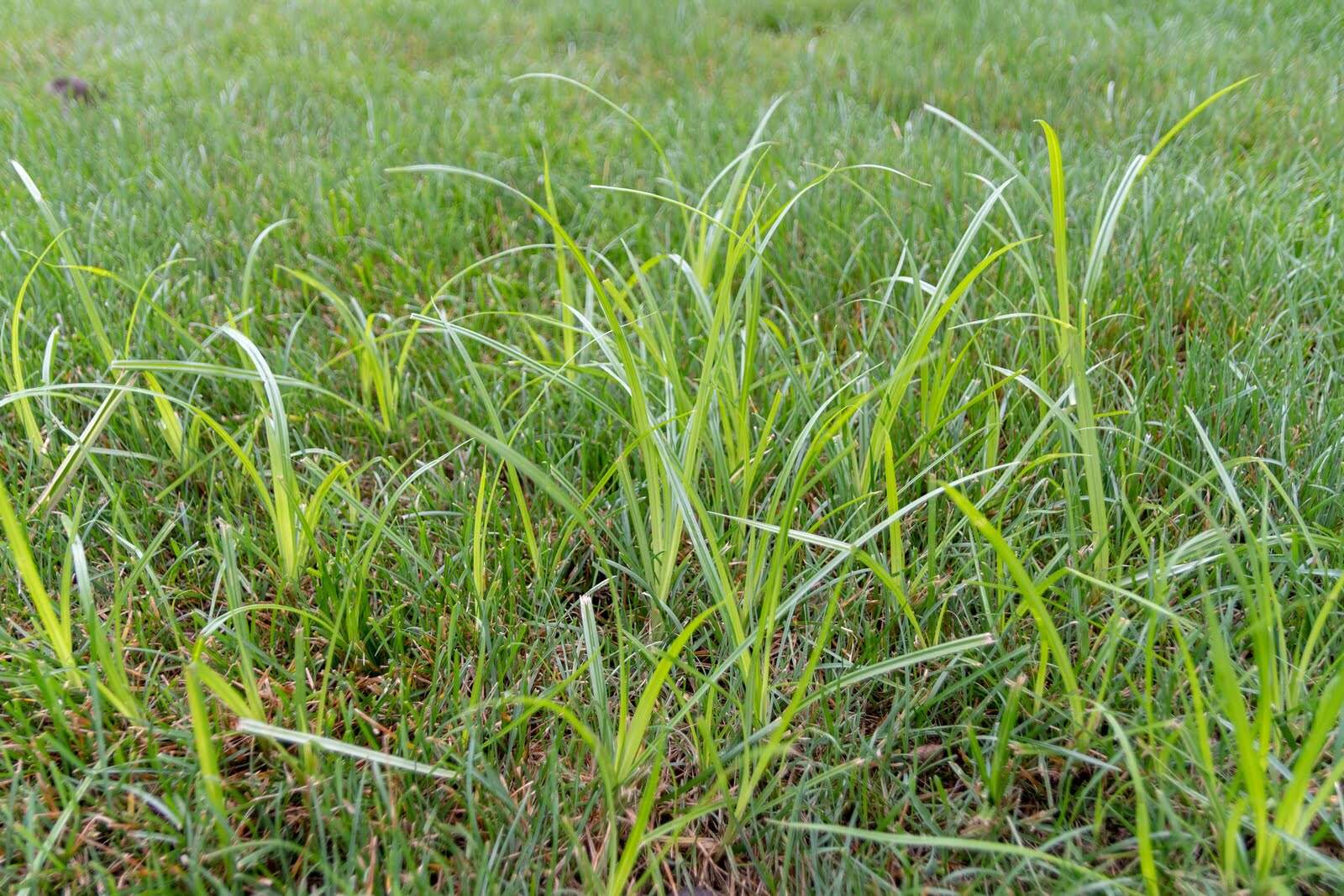

0 thoughts on “How To Store Nuts”